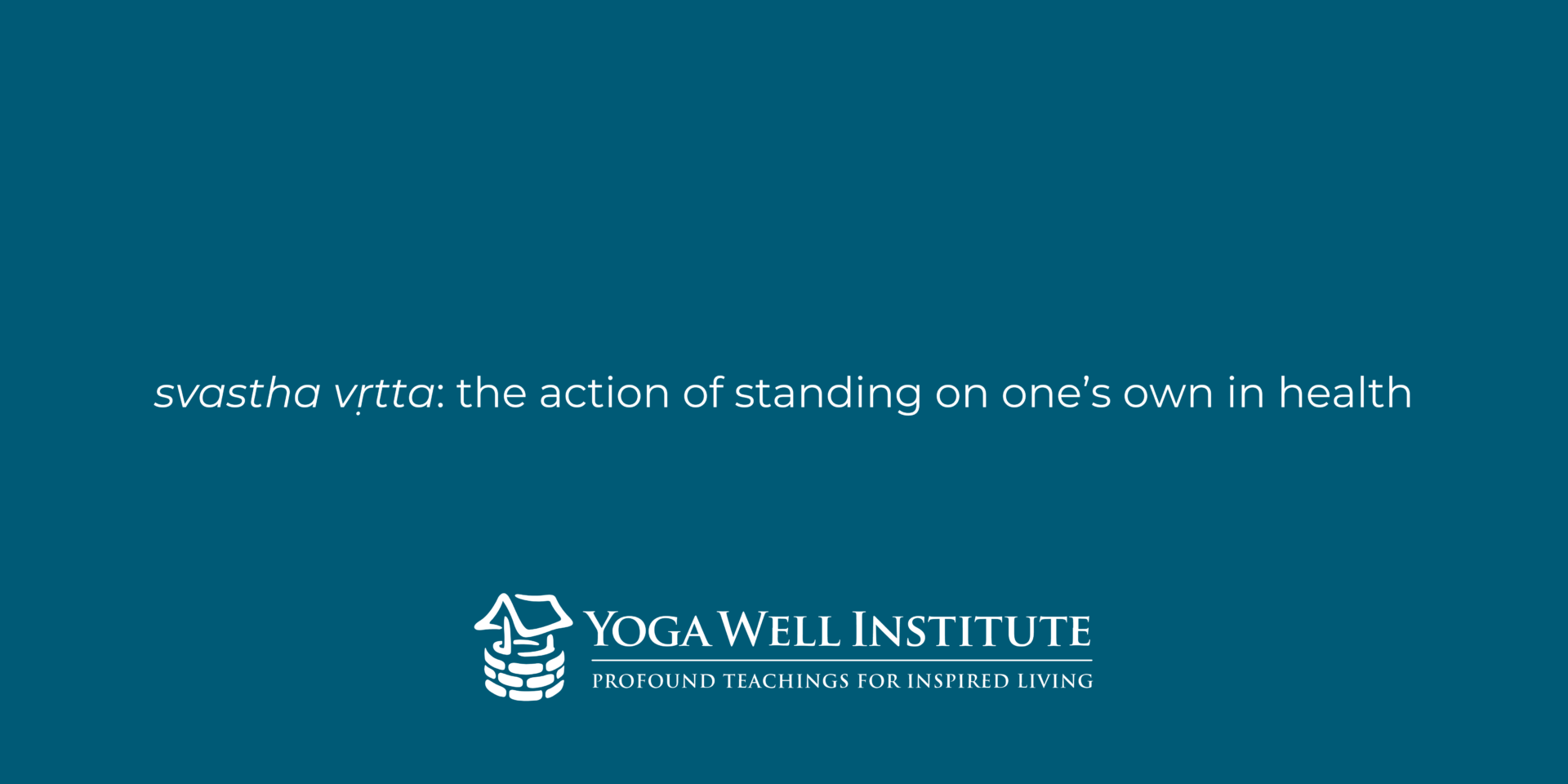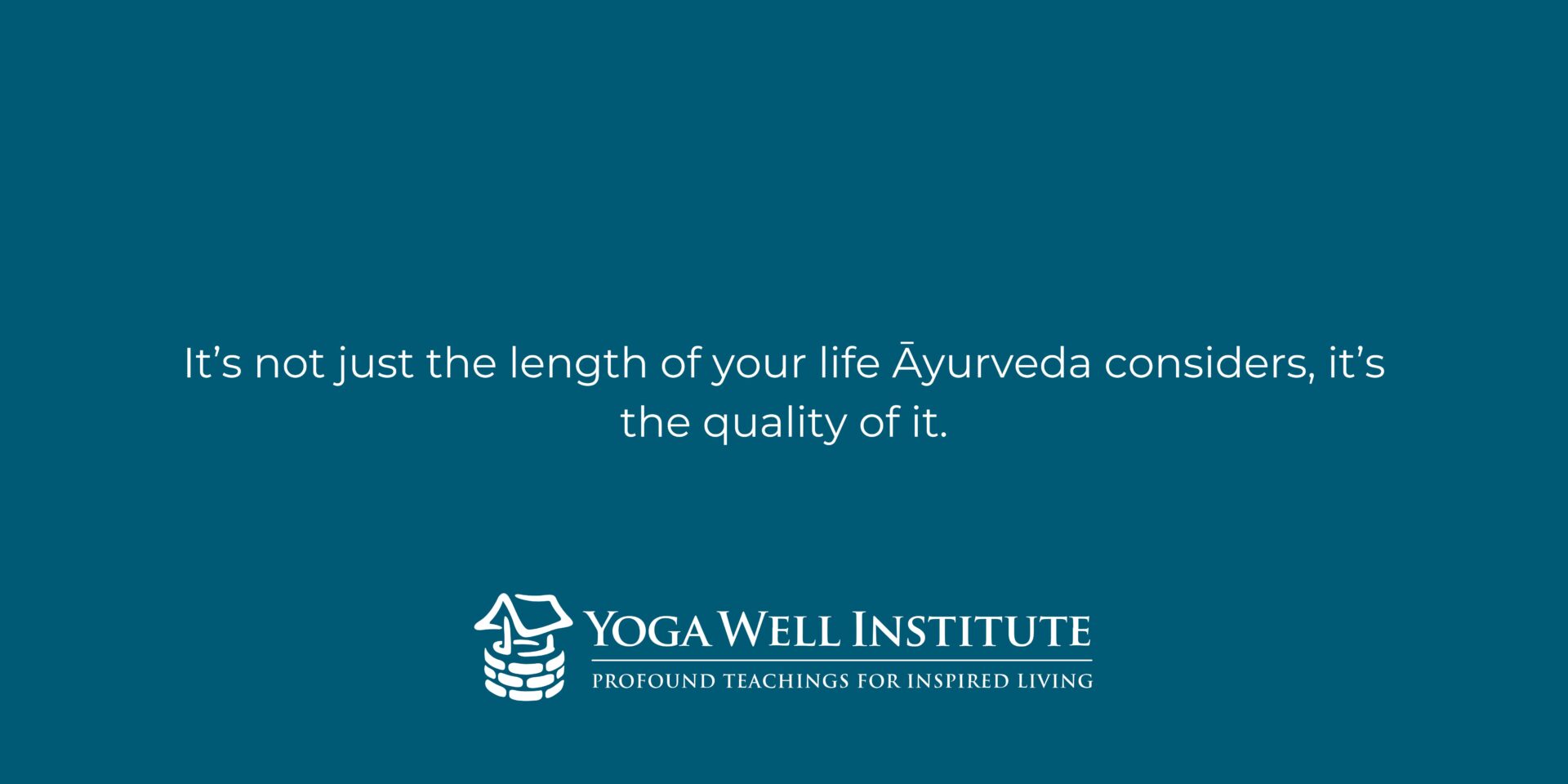There are numerous benefits to Āyurveda, an ancient health science from India, that focuses on how to bring mind, body, and spirit into balance. Āyurvedic medicine supports each individual to come into balance as well as to maintain that balance over a lifetime. Āyurveda uses specific models for how to see and assess what is happening in your body and how to use diet and lifestyle guidance to support overall health and vitality.
When you become familiar with Āyurveda, you start to see and understand the patterns that exist in your daily life that Āyurveda can support and help you bring into balance.
1. Āyurveda sees you as a unique individual.
What you need differs from what others need. Rather than being seen as one of many, Āyurveda views each person as a unique individual with a blueprint that dictates specific types of nourishment. Āyurveda challenges the fad diets that may work for some people, but does not address the needs of the individual, and gives you permission to have your own detailed diet and lifestyle program that specifically suits your body’s needs. The goal is never to be like Jane, the goal is to always be a balanced version of yourself. This is extremely important as you are then able to find a distinct tailored path to your wellness.

2. Āyurveda targets prevention.
Another benefit of Āyurvedic medicine is that it aids you to not only be healthy now but emphasizes health for a long life. To have a long life, you have to also look at the prevention of future suffering and ill health. Āyurveda does this in a few ways. It provides a concrete list of daily rituals and routines, called dinacharyā, that focuses on preparing your body for the day’s activities by cleaning out your body and mind from yesterday. You can start the new day with an unclogged, clean slate. This prevents things from coming in and getting stuck, blocking your channels. If followed consistently over time, it will provide a sense of svastha vṛtta, the action of standing on one’s own in health, you become a balanced, complete, healthy version of yourself.
3. Āyurveda follows the rhythms of nature.
Likes increase like in Āyurveda. If you have cold qualities in you and you eat cold food or spend time in cold weather, it will increase your cold. Because digestion is so important to your overall health and sense of wellness, one of Āyurveda’s primary goals is to improve it. When the sun first rises, it’s cooler and quieter. It’s a bad time for a cold smoothie. You want a small, warm meal. As the sun gets higher in the sky, things warm; your appetite increases. That’s when to have a larger meal. As the sun goes down, it gets cooler and you want to scale back to the smaller, hot meal again. Āyurveda recommends following the natural rhythms of the seasons with certain foods at certain times of the year, time of day and time of life to support optimal health.
4. Āyurveda is a lifestyle science.
So many have the attitude toward their health, “I am going to do whatever I want, whenever I want.” They stay up late, eat junk food, binge watch TV until 4 am, and then wonder why they are so sluggish or have no energy. They go to the doctor for a quick fix rather than changing their lifestyle. What if your doctor’s prescription was to go to bed earlier? Would you do it? Āyurveda says if you modify your lifestyle in the correct ways, you have the ability to feel less stress, feel better and have copious amounts of energy. Try going to bed between 9 – 10:30 p.m. and waking up after 8 hours. Turn off your phones and screens at least an hour or more before bed. If you aren’t on screens, then turn off your attention to the outside world. Your mind will be less busy, less disturbed and less stressed as you fall asleep.
5. Āyurveda benefits your mood.
In Āyurveda, “You are not what you eat, you are what you digest.” You could eat the most amazing nutritious food yet if you are unable to actually digest what you take in, you have wasted your body’s energy trying to digest it. Āyurveda uses a term called agni, which means digestive fire. When your agni is working well, what you eat goes through your system quickly and gives your body the nourishment and nutrients it needs to stay energized and focused. If your agni is not functioning properly, then your ability to get what you need is hindered. When this digestive fire is working well, it directly influences your mind and emotions. Have you ever eaten something that didn’t sit well and then you were in a bad mood? That is because your mind and body are interlinked. If digestion is not working well, mood can fluctuate. When your digestion is working well, your mood is stable.

6. Āyurveda is a science dedicated to your long life.
Āyurveda is an entire science focused on you not only feeling healthy and preventing future suffering and ill health, but also supporting you living a long life. Yippee! Rasāyana, which means rejuvenation or anti-aging, encompasses the diet, lifestyle, and routines that counter the effects of aging and disease and provide rejuvenation to the entire system. Sitting constantly in front of the TV on your couch would be a way to decrease your lifespan. Going for early morning walks would be considered a kind of rasāyana to increase your lifespan. Promoting rasāyana in your daily life creates a trajectory for a long life. And it’s not just the length of your life Āyurveda considers, it’s the quality of it. You can choose to support the quality of your life and age in a way that still finds you with vitality and juice left.
Āyurveda provides a framework for balanced healthy expression of ourselves. It gives you daily routines, dietary recommendations and rejuvenating therapies that support your overall health and well-being for a long life. Āyurveda gives a structure for how to see the human system but also what to do about it on a daily basis.
Looking for more?
To hear more fresh perspectives on what Yoga is, how it transforms the body and mind, and liberates your life tune into the Yoga Well Podcast! Within the Yoga Well Podcast we will share teachings from the Viniyoga lineage of Mr. TKV Desikachar, while exploring Yoga as a way of being that is practiced both on the mat and in our everyday life.




